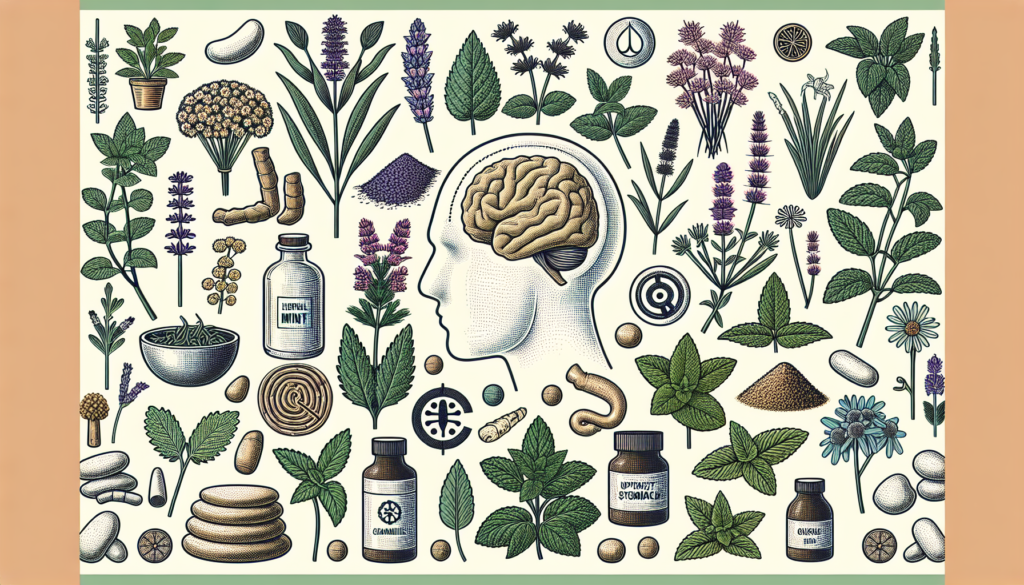So you’ve probably heard of herbal remedies before, but have you ever wondered what exactly they’re used for? Well, herbal remedies have actually been around for centuries and are derived from plants and plant extracts. They are commonly used to treat a wide range of health conditions, including colds, headaches, digestion problems, and even anxiety. These natural alternatives to conventional medicine have gained popularity in recent years due to their perceived effectiveness and minimal side effects. Whether you’re curious about the benefits of herbal remedies or considering incorporating them into your wellness routine, this article will provide you with a deeper understanding of their uses and potential advantages.
What Are Herbal Remedies For?

Overview of Herbal Remedies
When it comes to taking care of our health and well-being, we often find ourselves searching for natural and holistic approaches to address our ailments. One of the options that has gained popularity over the years are herbal remedies. But what exactly are herbal remedies and why do people turn to them?
Herbal remedies, also known as herbal medicine or botanical medicine, are natural treatments derived from plants that have been used for centuries to promote healing and support overall wellness. These remedies harness the power of medicinal plants and their active compounds to address various health conditions and promote general well-being.
Historical Use of Herbal Remedies
The use of herbal remedies dates back thousands of years and can be traced across different cultures and civilizations. Ancient traditions such as Traditional Chinese Medicine (TCM) and Ayurveda, the traditional medicine system of India, have long incorporated herbal remedies as integral parts of their healing practices.
Throughout history, herbal remedies were utilized to treat a wide range of health conditions, including digestive issues, respiratory problems, skin conditions, and even psychological ailments. Herbal medicine was seen as a way to work in harmony with nature, using the power of plants to bring the body back into balance.
Categories of Herbal Remedies
Herbal remedies can be categorized into various forms, each with its unique way of delivering the healing properties of plants. Some common categories of herbal remedies include:
- Teas and Infusions: Perhaps the most well-known form of herbal remedy, teas and infusions involve steeping plant parts, such as leaves, flowers, or roots, in hot water to extract their medicinal properties. This method allows for easy absorption and provides a soothing and calming effect.
- Tinctures and Extracts: Tinctures and extracts are concentrated forms of herbal remedies made by soaking the plant material in alcohol or a solvent. These concentrated forms can be easily mixed with liquids or taken directly for a more potent effect.
- Capsules and Tablets: For those who prefer a more convenient option, herbal remedies are available in capsule or tablet form. This allows for easy and precise dosage, making it a convenient choice for those on-the-go.
- Topical Formulations: Some herbal remedies can be used topically, such as ointments, creams, or poultices, to address skin conditions, relieve muscle pain, or promote wound healing.
Common Conditions Treated with Herbal Remedies
Herbal remedies can be used to address a wide range of health conditions. While it is important to note that herbal remedies should not replace professional medical advice or prescribed medications, they can complement conventional treatments and offer additional support.
Some common conditions that people turn to herbal remedies for include:
- Digestive Issues: Herbal remedies like ginger, peppermint, and chamomile can help soothe digestive discomfort, promote healthy digestion, and address issues such as indigestion, bloating, and upset stomach.
- Sleep Disorders: Herbal remedies such as valerian root, chamomile, and lavender are commonly used to promote relaxation, reduce anxiety, and support restful sleep.
- Immune Support: Certain herbs, such as echinacea, elderberry, and garlic, are known for their immune-boosting properties, helping to support the body’s natural defense mechanisms and ward off illnesses.
- Stress and Anxiety: Herbs like ashwagandha, passionflower, and lemon balm are often used to help manage stress, reduce anxiety, and promote a sense of calm and well-being.

Benefits of Herbal Remedies
One of the key benefits of herbal remedies is their potential to provide relief and support for various health conditions in a more natural and holistic manner. Unlike many conventional medications, herbal remedies are often derived from plants and are less likely to contain synthetic or artificial additives.
In addition, herbal remedies often work in harmony with the body’s natural processes, helping to restore balance and promote overall well-being. Many people find that herbal remedies provide a gentler approach to healing, with fewer side effects compared to pharmaceutical options.
Furthermore, herbal remedies can sometimes be more easily accessible and affordable than prescription drugs, making them an attractive option for those seeking alternative solutions for their health concerns.
Safety and Efficacy of Herbal Remedies
While herbal remedies have been used for centuries and continue to be relied upon by many, it is important to recognize that not all herbal remedies are created equal. The safety and efficacy of herbal remedies can vary depending on various factors such as the quality of the plant material, preparation methods, and individual variations in response.
It is crucial to consult with a knowledgeable healthcare professional or a qualified herbalist before incorporating herbal remedies into your healthcare routine, especially if you have underlying health conditions or are taking prescription medications. They can provide guidance, ensure proper dosage, and help monitor potential interactions or contraindications.
Precautions and Side Effects
Although considered natural, herbal remedies are not entirely free of potential risks and side effects. Some individuals may experience allergic reactions, interactions with medications, or adverse effects from specific plants or their compounds. It is important to be aware of these potential risks and take appropriate precautions.
Pregnant or breastfeeding individuals, children, and those with certain medical conditions may need to exercise additional caution or avoid certain herbal remedies altogether. Additionally, some herbs may have the potential for toxicity or adverse effects when used in excessive amounts or for prolonged periods.
Always read and follow the instructions and dosage recommendations provided with the herbal remedy, and if any unusual or concerning symptoms arise, seek medical attention promptly.
Considerations for Herbal Remedies
When considering herbal remedies, it is crucial to remember that they are not a one-size-fits-all solution. What works for one person may not work for another. Each individual’s body chemistry, health condition, and response to treatments can vary, so it may take some trial and error to find the right herbal remedy that suits your needs.
Furthermore, it is essential to remember that herbal remedies should not replace professional medical advice or prescribed medications. They are intended to complement conventional treatments and support overall well-being.
Choosing and Using Herbal Remedies
When choosing herbal remedies, it is important to prioritize quality and safety. Look for reputable brands or suppliers that adhere to good manufacturing practices and provide detailed information about the sourcing, processing, and testing of their products. This can help ensure that you are getting high-quality herbal remedies that are free from contaminants or adulterants.
Additionally, consider consulting a qualified herbalist or healthcare professional who specializes in botanical medicine. They can provide personalized guidance, recommend specific herbal remedies based on your needs, and help you navigate any potential interactions or contraindications.
Finally, follow the recommended dosage and usage instructions provided with the herbal remedy. It is important not to exceed the suggested dosage or duration of use unless advised by a healthcare professional, as this can increase the risk of adverse effects.
Conclusion
Herbal remedies have a rich history and continue to be embraced by many individuals seeking natural and holistic approaches to support their health and well-being. From teas and tinctures to capsules and creams, there are various forms of herbal remedies to choose from, making it accessible to people with different preferences and needs.
While herbal remedies offer potential benefits and can be a valuable addition to your healthcare routine, it is essential to approach them with caution and seek professional guidance. Be mindful of potential risks and side effects, and never hesitate to consult a healthcare professional or herbalist for personalized advice.
Remember, your health is a priority, and by educating yourself and making informed choices, you can integrate herbal remedies into your wellness journey in a safe and effective manner.






